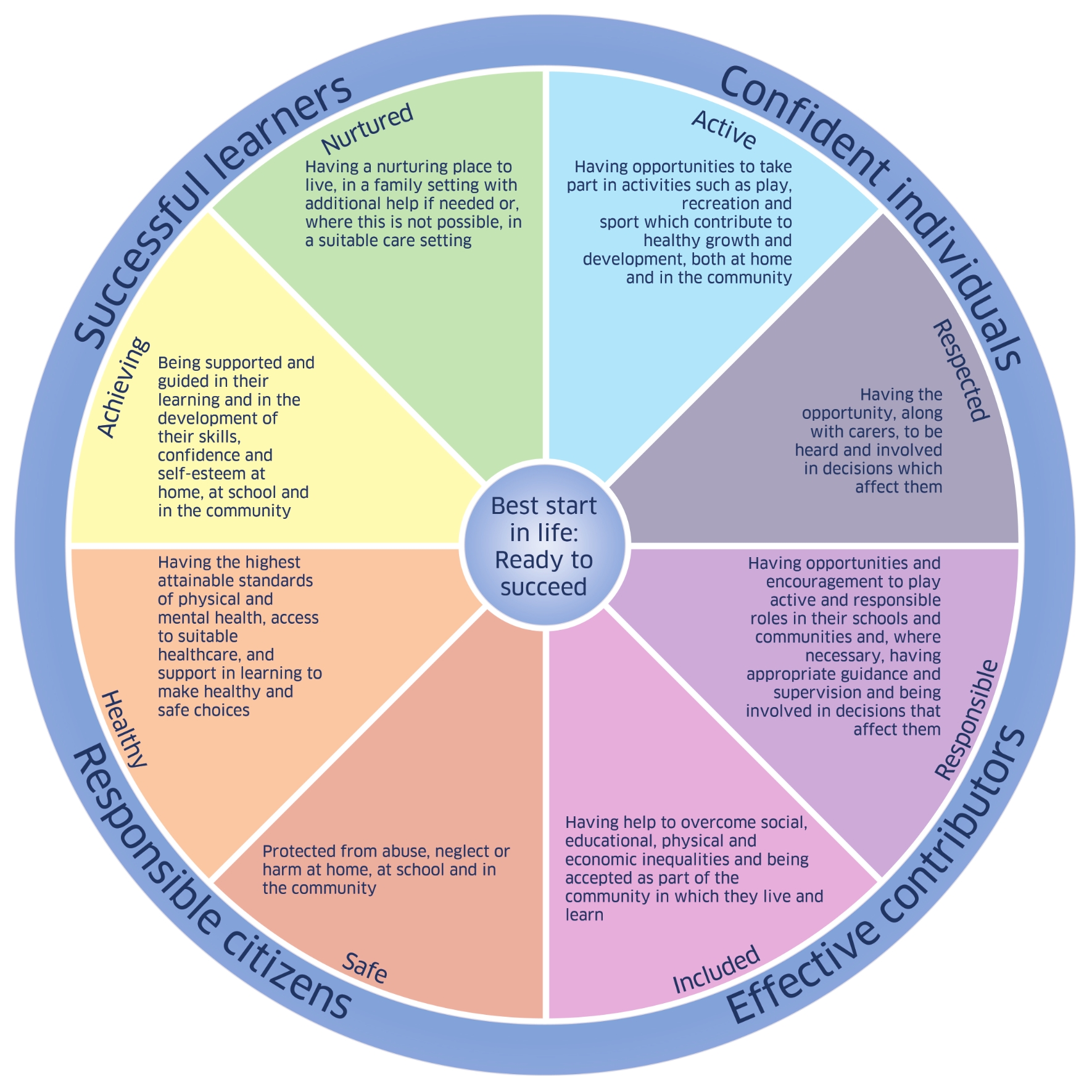Think about these as your 6-a-day for wellbeing and resilience. You can find out more about each of the themes in the links below:
- Be Aware of your mental health and wellbeing and recognise when you need to look after yourself or ask for help
- Be Kind to yourself and others
- Belong by connecting with friends and family and contribute to where you live, learn or work
- Enjoy and Learn new things
- Be Active to keep yourself healthy
- Nurture your body and mind
You might recognise some of the ‘Six Ways’ as they are similar to SHANARRI wellbeing indicators, which you may have learned about at school.
SHANARRI stands for Safe, Healthy, Achieving, Nurtured, Active, Respected, Responsible and Included.
For each of the ‘Six Ways’ there’s a link to the words associated with SHANARRI to help you to understand.

How are you today?
Think about today and how you are doing for each of the ‘six ways’, you can use the emoji flags below to mark how you are doing. You and a friend could work through each of the ‘six ways’ together.
Don’t worry if you don’t manage to do something for all of the ‘six ways’ each day. If you are struggling with some areas every day or for a number of weeks it’s a good idea to talk to a Trusted Adult. You can discuss with them ideas about what you could do and if they can support you.
- 😃 Great – I’m doing well at this
- 🙂 Okay – I’m working on this but I’d like to do this more regularly or improve
- 😧 Not Good – I want to do this but I don’t know where to start
- 😐 Awful – I’m struggling with this and need some support
Find out more about the 6 Ways to Be Well.
Find loads more useful wellbeing content on the Borders Wellbeing page.
